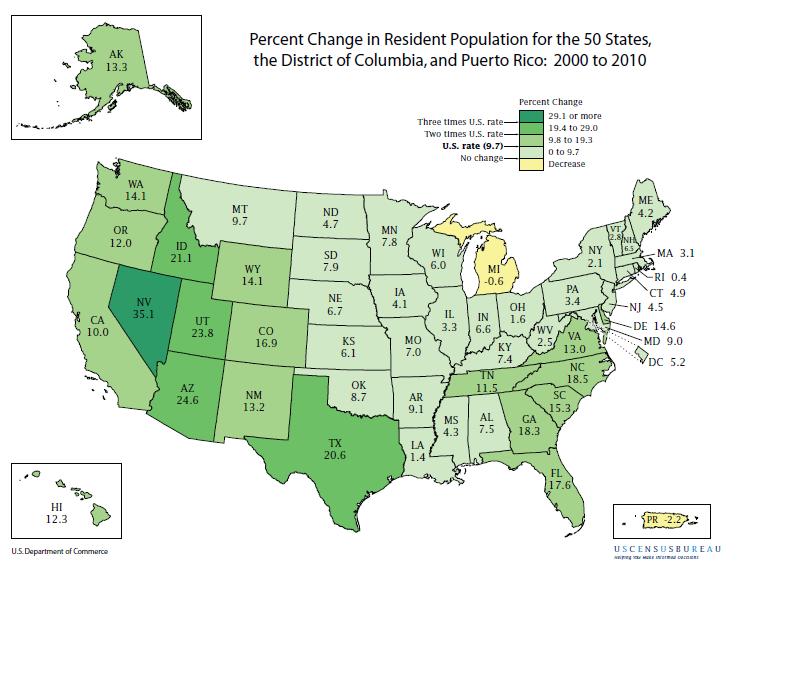New Jersey Future Blog
State Budgets and Spending For Development
January 31st, 2003 by Tim Evans
- This week, the Governor used his State of the State message to describe uncontrolled development as the single greatest threat to New Jersey’s quality of life, and vowed to check the loss of 50 acres a day to development.
- New Jersey isn’t the only state facing a budget shortfall. State tax revenues, when adjusted for inflation, fell nationwide by nearly one percent in the last quarter measured, the fifth straight quarter of revenue decline, and a worse decline than expected.
- New Jersey leads the mid-Atlantic states in declining revenue from personal income taxes. The state expects a budget shortfall as high as $5 billion for the fiscal year beginning in July.
- New Jersey also leads its neighbors and the nation at large in spending for infrastructure. The average New Jerseyan pays $543 each year for public investments in infrastructure, primarily for highways and education. (Sources: “Continued Weakness in State Tax Revenue,” Report No. 50 by The Nelson A. Rockefeller Institute of Government; and The New Jersey State Development and Redevelopment Plan)
DEVELOPMENT SPENDING CRITICAL WHEN BUDGETS ARE TIGHT
Investment in roads and public transit, schools, sewers and other public infrastructure is critical to a healthy and prosperous state. Infrastructure spending is even a major driver of jobs and productivity, according to the January/February issue of The Atlantic Monthly. It’s also one of the most powerful tools government can use to implement good growth planning.
When infrastructure investment is made in the wrong places, it actually raises costs to taxpayers by requiring even more investment to solve traffic and related growth problems. Sprawling development also costs a lot more in infrastructure to create than would more compact development or redevelopment.
Especially in tight budget times, New Jersey can’t afford to support poorly planned development. Smart growth – and smart budgeting – means encouraging development where infrastructure already exists or can be easily extended, to maximize the investments we’ve already made in our communities and homes, and to spare our open lands. Smart growth, and smart budgeting, means investing in the transportation options that decades of sprawling, auto-dependent development has taken away; in particular, it means rebuilding and revitalizing communities where public transit options exist, to help ease New Jersey’s growing traffic congestion.
New Jersey estimates it will spend $114 billion on infrastructure by 2020. New Jersey also has a plan for smarter growth. The State Development and Redevelopment Plan is a statewide blueprint for revitalizing existing communities, and preserving open land.
Using this plan as the basis for New Jersey’s infrastructure spending could mean a win-win for New Jersey in tough times: smart budgeting, and smart growth.
















